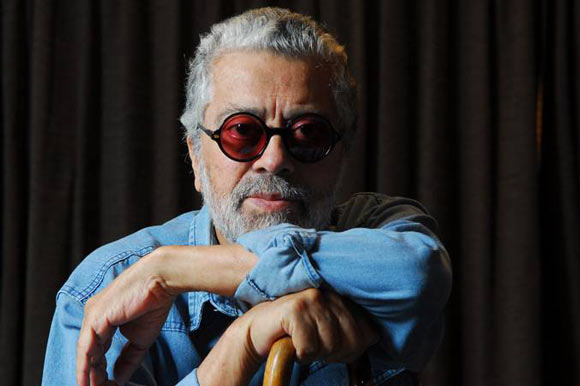
Facundo Cabral was an extremely popular Argentine singer and songwriter. Cabral’s influential legacy led to him being named a “Messenger of Peace” by UNESCO in 1996.
Facundo Cabral was born in La Plata, Argentina on May 22, 1937. Since his father deserted his family, Cabral had a brutal childhood. He was known to have walked over four hundred kilometers at the tender age of nine to look for work to support his mother and two siblings. He also couldn’t talk until the age of nine, and he remained illiterate until the age of fourteen. He was reduced to several menial jobs, and his first interaction with professional music was when his hotel manager at Mar del Plata was impressed with his elaborate guitar skills. Cabral was also arrested and sentenced to serve a term at a reformatory in Southern Argentina. In his twenties, Cabral was diagnosed with bone cancer, and after being given only a couple of months to live, Cabral fought and recovered to live many more years of his life. Cabral also lost his wife and child in the tragic PSA Flight 182 crash in San Diego, California, while his child was only a year old. Cabral’s undefeatable strength to endure tragic times was an inspiration to all, and many of his fans revered him for this quality. He was also known to live a very humble and modest life, and he invested almost all of his earnings into traveling and touring. He ultimately performed in over one hundred and sixty five countries, that too in eight different languages.
Cabral’s early influences included Atahualpa Yupanqui and the Argentine José Larralde. Cabral started off his career as a restaurant performer for his hotel at Mar del Plata, and he eventually shot to prominence when his single “No soy de aqui ni soy de alla” (“I’m not from here nor there”) was released in 1970. However, he was labeled a “protest singer” in the 1970’s due to his bold lyrics and he was eventually forced to leave Argentina for Mexico. It was then when Cabral traveled the world to perform in over one hundred and sixty countries. Cabral eventually returned to Argentina in 1984, and by 1987, his concerts attracted more than fifty five thousand people. Cabral also toured with fellow Argentine singer Alberto Cortez in 1994. He also composed plenty of music in response to the Falklands War of 1982. Even after hitting the age of sixty, Cabral released plenty of singles and albums, he released “En Vivo” in 2003; a live album which was recorded in Peru.
Cabral was tragically murdered in Guatemala City on July 9, 2011 while en route to the La Aurora International Airport. Cabral was travelling with his concert promoter Henry Farinas and agent David Llanos back from a concert at Quetzaltenango. It was reported that gunmen attacked his white range rover with automatic weapons, leaving almost twenty bullet holes in the vehicle. It was later revealed that the target of the ambush seemed to be concert promoter Henry Farinas, and not Facundo Cabral. However, this was later disputed.
Facundo Cabral’s death was mourned at an international level. Leaders from all over Latin America expressed sadness and condolences. The “Messenger of Peace” was remembered as one of the most inspirational artists in Argentine history.